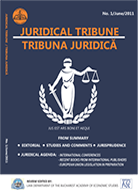The impact of the new Chinese Foreign Investment Law 2019 on the administrative legal system governing foreign investments and implications for the investment relations with Lusophone Markets
The impact of the new Chinese Foreign Investment Law 2019 on the administrative legal system governing foreign investments and implications for the investment relations with Lusophone Markets
Author(s): Muruga P. RamaswamySubject(s): International Law, Law on Economics, Commercial Law
Published by: Societatea de Stiinte Juridice si Administrative
Keywords: foreign investments; administrative control; PRC administrative law; Foreign Investment Law 2019;
Summary/Abstract: In March 2019, China revamped its domestic legal regime governing foreign investments with a new Foreign Investment Law that will enter into force in 2020 (‘FIL2019’). The paper examines how the new law impacts the administrative control of foreign investments in China. Given the past approach of China, using administrative legal measures in diverse legal instruments to regulate foreign investments, how the FIL 2019 abolishing/consolidating those instruments increases or decreases the scope of administrative control of foreign investment is an intriguing question facing foreign investors and administrative law scholars alike. In a similar vein, the potential implications of the new FIL 2019 upon specific foreign investment relations becomes equally significant. The FIL 2019 could not only trigger new reciprocity concerns viz-a-viz certain host states of Chinese outward investments, but also may demand the revision of some existing Chinese BITs with foreign states. The paper makes a brief reference regarding the general implications of the new law upon the investment relations with specific Lusophone host markets (for which, Macau SAR is the official facilitator of Economic Relations). Based on the findings, the paper concludes with a discussion on some future course.
Journal: Tribuna Juridică
- Issue Year: 9/2019
- Issue No: 19
- Page Range: 330-343
- Page Count: 14
- Language: English

